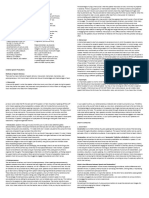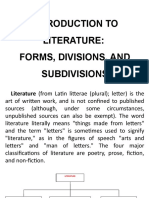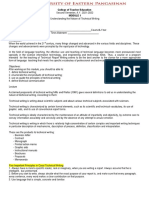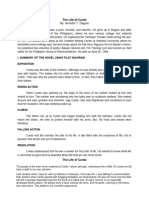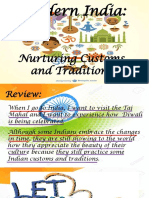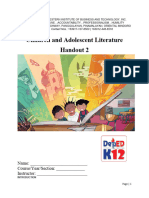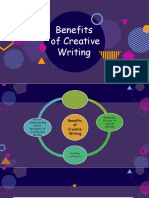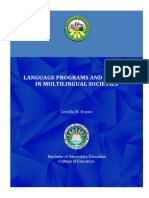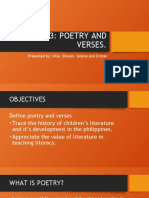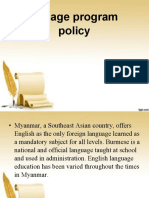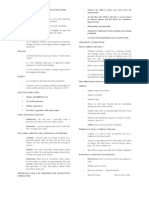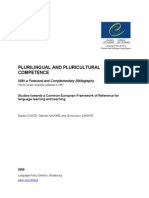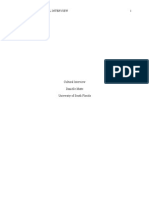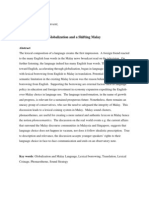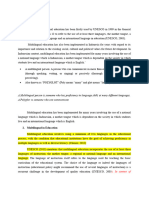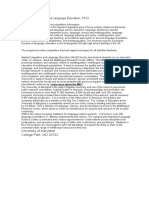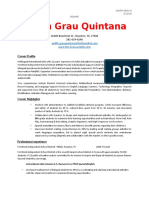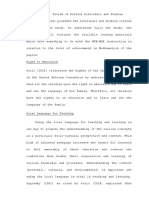0% found this document useful (0 votes)
411 views6 pagesLexical Elaboration and Linguistic Expression
This document discusses lexical elaboration and linguistic expression. It defines lexical elaboration as expanding vocabulary through mechanisms like borrowing words from other languages. Linguistic expression refers to using proper grammar and syntax. In multilingual societies, lexical elaboration occurs through processes like code-switching and loanwords. This enriches linguistic expression by giving speakers a wider range of vocabulary and the ability to combine linguistic elements to precisely express new concepts.
Uploaded by
Hazel De La VegaCopyright
© © All Rights Reserved
We take content rights seriously. If you suspect this is your content, claim it here.
Available Formats
Download as DOCX, PDF, TXT or read online on Scribd
0% found this document useful (0 votes)
411 views6 pagesLexical Elaboration and Linguistic Expression
This document discusses lexical elaboration and linguistic expression. It defines lexical elaboration as expanding vocabulary through mechanisms like borrowing words from other languages. Linguistic expression refers to using proper grammar and syntax. In multilingual societies, lexical elaboration occurs through processes like code-switching and loanwords. This enriches linguistic expression by giving speakers a wider range of vocabulary and the ability to combine linguistic elements to precisely express new concepts.
Uploaded by
Hazel De La VegaCopyright
© © All Rights Reserved
We take content rights seriously. If you suspect this is your content, claim it here.
Available Formats
Download as DOCX, PDF, TXT or read online on Scribd
/ 6



